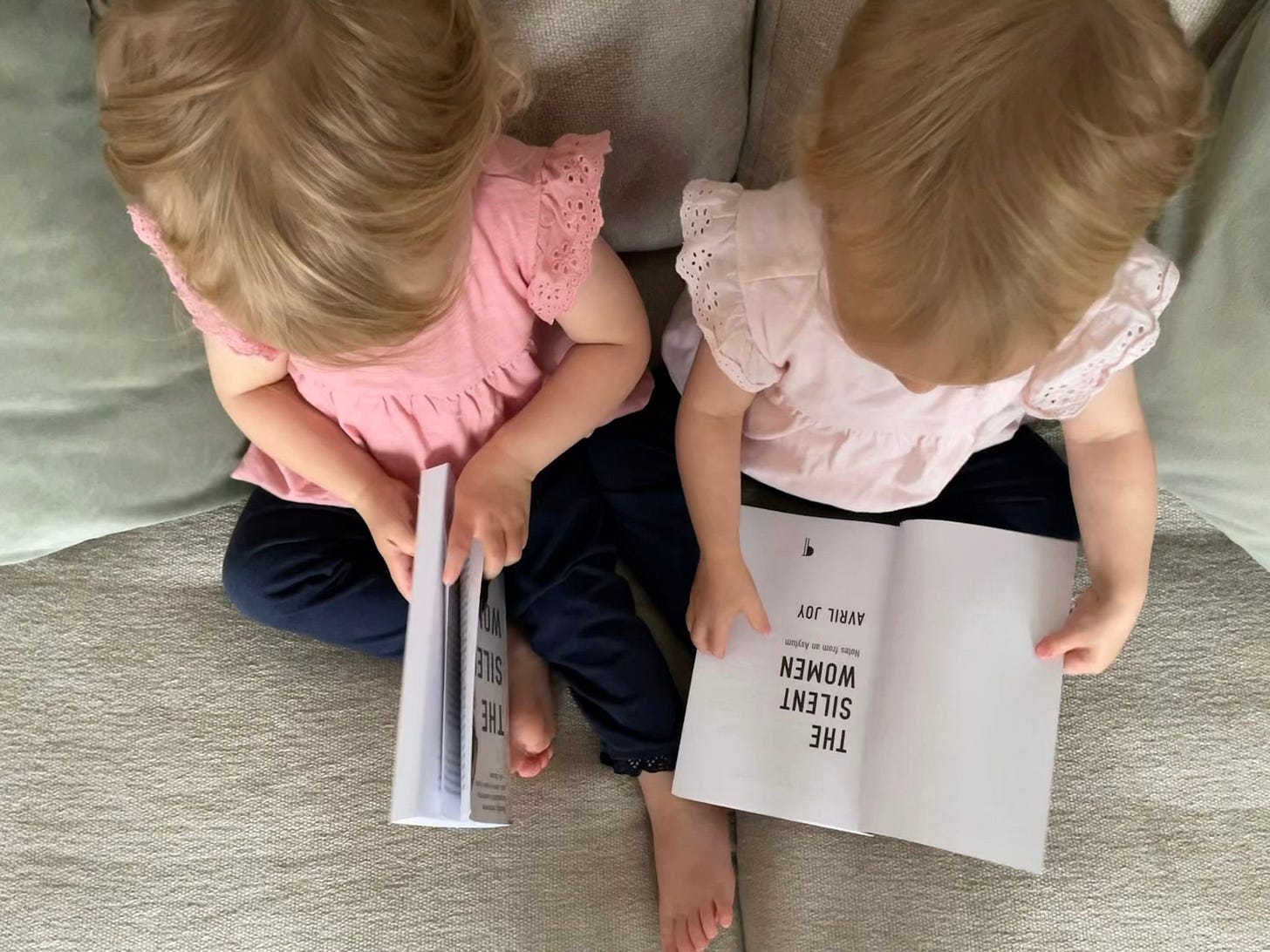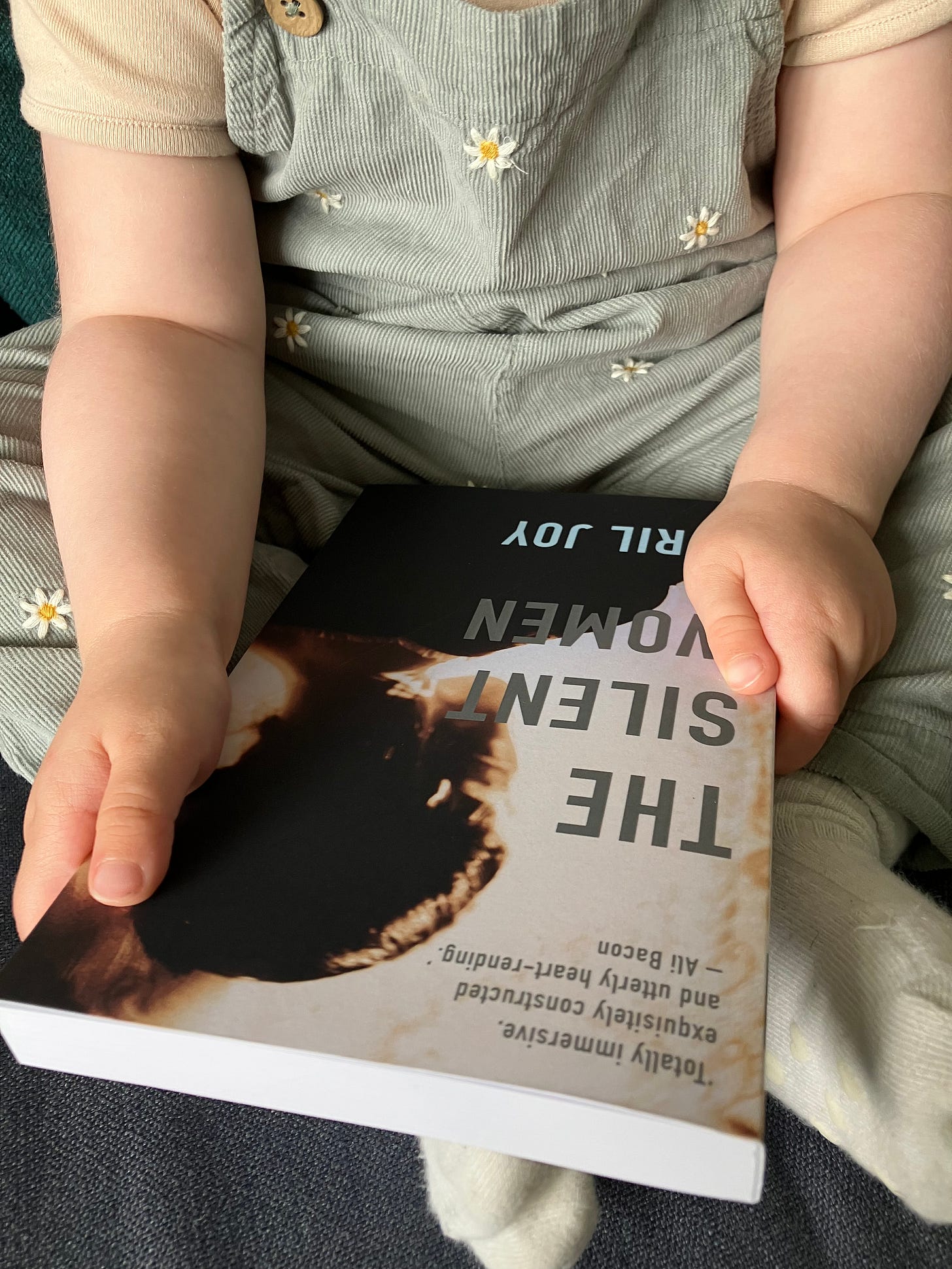I've spent a lot of time with granddaughters this week. Never a bad thing! I’ve also had the pleasure of old friends coming to visit for the first time in a very long time - so opportunities for writing have been few - hence my newsletter being briefer than usual...and very centred this week on writing craft.
Last week in the comments I was asked for my thoughts on reading as a writer. It’s great to have this kind of interaction, so thank you to unhurried reader. Now seems like as good a time as any to offer these thoughts - so here they are - just me, thinking aloud, about how I read as a writer. This is written entirely from my own perspective, and practice. I’m not, heaven forbid, suggesting this is how it should be done! But hopefully it will offer up something of interest.
In thinking about it, I realise I read as a writer in two ways.
1. Deliberate, forensic examination - I rarely do this but I have done it several times. The first, some years ago now, was when I tried my hand at writing crime fiction (probably the nearest I came to mainstream publication, before signing with Linen Press- at least as far as my agent at the times was concerned.)
Crime was a new genre for me so I decided to choose a crime writer I admired, in this case Henning Mankell, author of the Wallander series, as my model. I liked the understated but real characters he created, his acute sense of place and weather, and the way he was not afraid to express his social conscience. I decided to take a novel of his and pick it apart forensically, making notes on each chapter, asking myself the how questions- how does he create the atmosphere and mood, how does he keep the reader engaged, create tension, pace, deliver information, etc etc.
I learned some valuable lessons from this exercise and even though I didn't continue writing crime, I took them all into my subsequent writing. The lessons for me, were:
Less is more when it comes to describing place, weather, etc – it can all be done in a line or two – you just need to slip these lines in regularly to keep the winter/summer /city …whatever in the reader’s mind.
Character is everything and although characters might be understated, your protagonist should not be entirely passive – he/she must act.
Dialogue is key to the pace of a novel (especially if it’s crime) and needs to be authentic and sharp – I already knew that readers rarely skipped dialogue.
A hook at the end of the chapter really cranks up the pace and keeps the reader reading.
The lessons would be different for different novels, and likewise for different genres, including non-fiction. The principle is, there is always something to learn from the best, if you give it your close attention.
2. Intuitive/inspiration - the second way I read as a writer is less forensic and more intuitive. Not as easy to describe. It goes something like this: I read a book I really love, it may be fiction it may be creative nonfiction, I think to myself I wish I'd written this book, or, this is the kind of book I'd like to write. I then ask myself why, what's prompted this. Why do I love it? What is so good about it?
It might just be the subject matter itself or it might be the interesting and varied way in which the book is constructed. I might be inspired to write something with similarly short chapters for instance, or without chapters at all. But more often than not it's less specific, it's a mood or an atmosphere that pervades the book. Or a voice. I might find it hard to even distinguish what it is I love about the book but language will always be one of those components for me.
When I find myself entranced by the language, I am inspired to look at my own use of language and ask is it becoming ordinary or tired? Can I make it fresher more original, more vivid, or perhaps less descriptive - if you look at Sally Rooney's opening to Normal People, as I did recently, by chance, it’s all about the dialogue. I don't write like her but I knew straight away I'd like to experiment a bit with this style and see what it could bring to my own work.
The inspiration may take the form of using a similar voice. I might decide I too want to write something from a young person's perspective. It might be POV - I've just read something in second person - "you," and straight away I wanted to try this out in a story I was writing in first person.
All of this is very elusive, again I believe it works with fiction and non fiction - all it really boils down to is close reading, awareness, observation of the writer at work, along with the aspiration to be a better writer whatever our genre, to learn what we can from writers we admire. I am particularly driven, which can be a curse but is also a blessing as I’m always looking to learn something new
There is one downside, which is that when I read although I still have the pleasure that reading brings, I have half an eye on what the writer is doing. It can make me a very critical and impatient reader at times.
But it's a price worth paying, and besides, I can't not do it anymore. I've been a writer too long to return to just being the reader.
I hope this makes sense to all, and answers some of the questions you may have about reading as writers. If not please feel free to ask more questions in the comments.
A couple of quick highlights from this last week:
I loved this from George Saunders’s Substack - on being a mediocre writer - I think part of it chimes with what I’m saying above.
I watched the film, Women Talking, for the first time and was knocked out! It was brilliant, i’m still thinking about it, and possibly for me that rare occasion when the film is better than the book.
I was hooked by Rose Tremaine’s latest novel, Absolutely and Forever, kind of old-fashioned, but it should feel dated as its set in 50s and 60’s Britain, very upper middle class, but I love her writing and though this was a slim novel, for me it was exactly the right length.
Thanks for reading - Avril x




Thank you, Avril. This is great food for thought.
Incredibly wise advice. moving and changing as it progresses. Pay attention earnest writers! Wc